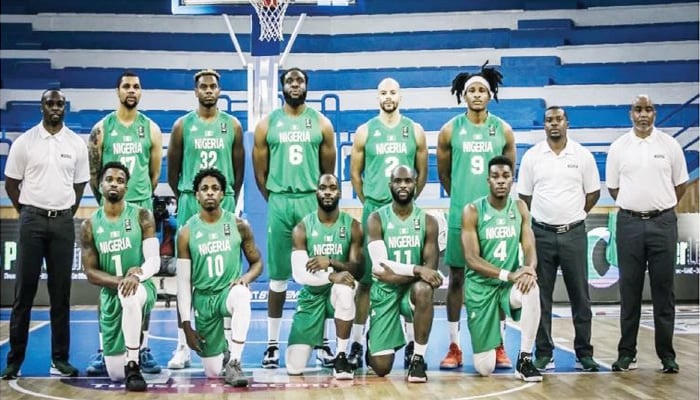Paragraph 1: D’Tigers’ Decline in FIBA Rankings
Nigeria’s national men’s basketball team, D’Tigers, experienced a significant drop in the FIBA world rankings, falling 11 spots from 42nd to 53rd. This decline follows their performance at the 2025 FIBA AfroBasket tournament in Angola, where they reached the quarter-finals but ultimately lost to Senegal. The latest rankings reflect a loss of momentum for the team, dropping from 297.8 points in March to 248.7 points in September. This slide also impacted their continental standing, falling from sixth to eighth in Africa. The drop highlights the challenges faced by the team in maintaining their competitive edge on the global basketball stage.
Paragraph 2: AfroBasket 2025 Performance and Challenges
D’Tigers’ journey at the 2025 AfroBasket tournament was marked by both promise and setbacks. While they topped Group B with victories over Madagascar, Tunisia, and Cameroon, their progress was halted by a quarter-final defeat against Senegal. The team’s preparation for the tournament was less than ideal, potentially contributing to their eventual outcome. Despite the loss, individual players like Caleb Agada, Josh Okogie, Stan Okoye, and Ike Nwamu demonstrated strong performances throughout the competition. However, their individual brilliance could not compensate for the team’s overall shortcomings, leaving them short of their aspirations.
Paragraph 3: Looking Ahead to World Cup Qualification
Following the AfroBasket disappointment, D’Tigers are shifting their focus to the FIBA Men’s World Cup Qualifying Series, scheduled to begin in November. Their objective is to secure a spot in the 2027 World Cup in Qatar, after missing out on the 2023 edition. This qualifying campaign represents a crucial opportunity for the team to redeem themselves and re-establish their presence on the international stage. The last time Nigeria participated in the World Cup was in 2019 in China, under the leadership of former coach Alex Nwora. The upcoming qualifiers will test the team’s resolve and their ability to overcome recent setbacks.
Paragraph 4: Continental Landscape and Global Rankings
The African basketball landscape has seen significant shifts, with South Sudan maintaining its top spot in the continental rankings despite dropping one place globally to 24th. Angola, the newly crowned AfroBasket champions, climbed four places to second in Africa and 29th globally, reflecting their recent success. The Ivory Coast, Egypt, Senegal, Cape Verde, Tunisia, Cameroon, and Mali round out the top ten African teams. Globally, the United States remains at the pinnacle of the rankings, followed by world champions Germany, Serbia, France, and Canada. These rankings underscore the evolving dynamics within the basketball world and the challenges faced by nations striving to maintain or improve their positions.
Paragraph 5: Analysis of D’Tigers’ Position and Path Forward
D’Tigers’ fall in the rankings highlights the competitive nature of international basketball and the importance of consistent performance. Several factors may have contributed to their decline, including suboptimal preparation for AfroBasket, the evolving landscape of African basketball with the rise of new powerhouses, and the difficulty in consistently fielding a full-strength squad due to player availability and other logistical challenges. To regain their footing, D’Tigers must address these issues and focus on developing a robust program that ensures consistent player development and team cohesion.
Paragraph 6: Strategic Considerations for D’Tigers’ Resurgence
A multi-pronged approach is needed for D’Tigers to climb back up the rankings. This includes improving the team’s preparation for major tournaments, focusing on player development and talent identification, and ensuring consistent participation in high-level competitions. Strengthening the domestic basketball league and developing a robust pipeline of young talent are crucial steps. Furthermore, fostering a stable and supportive environment for the team, including addressing any administrative or logistical challenges, will be essential for long-term success. The road back to prominence will require commitment, strategic planning, and a concerted effort from all stakeholders involved in Nigerian basketball.














